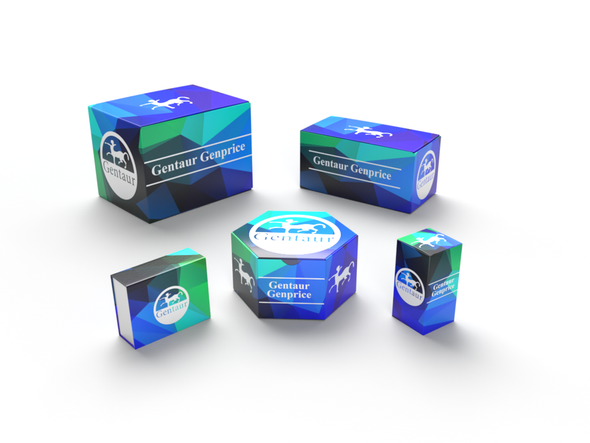749
CheKine™ Reactive Oxygen Species (ROS) Detection Fluorometric Assay Kit | KTB1910
- SKU:
- 749-KTB1910
- Availability:
- Usually ships in 5 working days
Description
CheKine™ Reactive Oxygen Species (ROS) Detection Fluorometric Assay Kit | KTB1910 | Gentaur UK, US & Europe Distribution
Product Category: Cytology
Application: Cell Metabolism
Product Type: Biochemical Assay Kit
Sequence: N/A
Activity: N/A
protein Lenght: N/A
Preparation: N/A
Purity: N/A
Formulation: N/A
Kit Component: • Extraction Buffer
• ReagentⅠ
• Reagent Ⅱ
• Reagent Ⅲ
• Reagent Ⅳ
• Standard
Features & Benefits : • simple, sensitive, rapid colorimetric Acetyl-CoA detection method.
• compatible to various biological samples, especially animal or plant tissues or cell cultures (adherent or suspension) .
• Provides detailed sample preparation and results calculation methods.
Molecular Weight: N/A
Usage Note: • Do not mix the components between different batch numbers and manufacturers; otherwise, the results may be abnormal.
• Avoid bubbles while mixing or redissolving components.
• Change pipette tips frequently to avoid cross contamination between components.
• Ensure that all components and equipment are at the proper temperature before starting the experiment.
• All samples and reagents should be on ice to avoid denaturation and deactivation .
• Please to extract Acetyl-CoA from fresh samples in order to ensure the enzyme activity .
• Please reduce the tissues weight if the OD values is too high, or reduce the volume of Extraction Buffer if the OD values is too low .
Storage Conditions: The kit is valid for 6 months. Please refer to the table below Materials supplied and Storage conditions to store all the components.
Shipping: Gel pack with blue ice.
Background: Acetyl-CoA is widely present in animals, plants, microorganisms and cultured cells. It is an important intermediate metabolite produced during the metabolism of biometrics. In vivo energy substance metabolism is a hinging material. The three major nutrients --glucose, lipid, protein which could be via acetyl coenzyme A to form a common metabolic pathway - tricarboxylic acid circulation and phosphorylation. Through this path, Acetyl-CoA thoroughly could be oxidize carbon dioxide and water, and release energy for ATP synthesis. Further, Acetyl-CoA a is a precursor material while synthetic fatty acid, ketone body, and Cholesterol and its derivatives .
Alternative Names: N/A
Search Names: N/A
Tag: Acetyl-CoA










